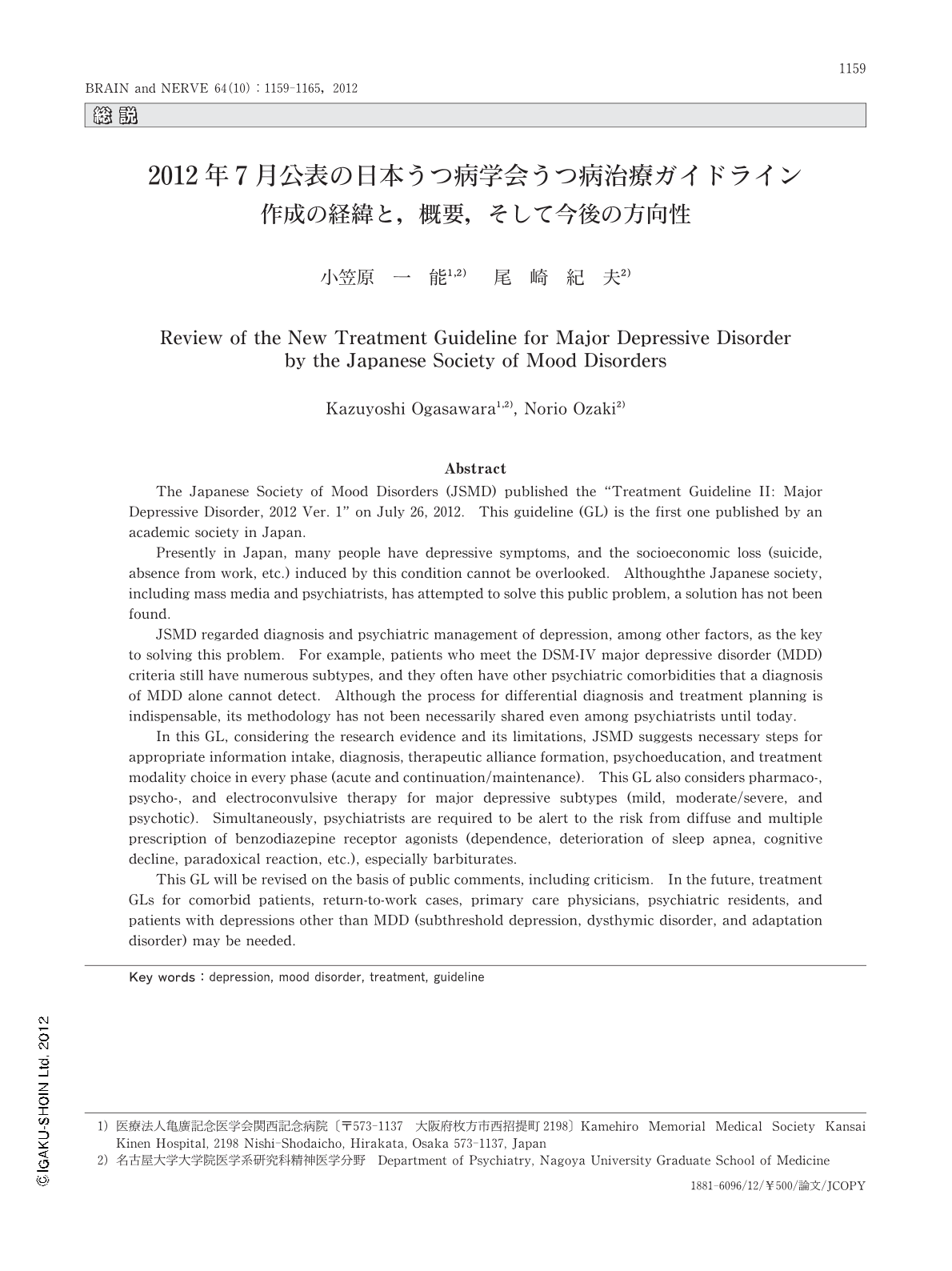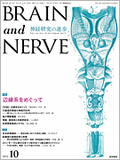Japanese
English
- 有料閲覧
- Abstract 文献概要
- 1ページ目 Look Inside
- 参考文献 Reference
はじめに
今般,日本うつ病学会は「治療ガイドライン Ⅱ.大うつ病性障害2012 Ver.1」(以下,本GL)1)を作成・公表した。学会が発表するうつ病に関するガイドラインとしては,本邦で初めてのものである。
本GLは基本的に,うつ病診療に関わる臨床医が活用することを念頭において作成したものであったにもかかわらず,公表と同時に一部全国紙で一面報道2)されるなど,予想外の注目を浴びたことには,執筆に関与したわれわれも驚くと同時に,社会全体のうつ病に対する関心の高さを再認識したところである。
本稿では,本GLの作成の経緯と狙いを中心に解説するとともに,内容の概略を紹介したい。それによって,うつ病診療に関わる臨床医である読者に本GLの理解を深めていただくとともに,それ以外の読者には現在の精神医学が日々取り組んでいる問題の一端をご紹介できればと考える。
なお,本GLは当学会ホームページ(http://www.secretariat.ne.jp/jsmd/0726.pdf)から全文が入手可能である。
Abstract
The Japanese Society of Mood Disorders (JSMD) published the "Treatment Guideline II: Major Depressive Disorder, 2012 Ver. 1" on July 26, 2012. This guideline (GL) is the first one published by an academic society in Japan.
Presently in Japan, many people have depressive symptoms, and the socioeconomic loss (suicide, absence from work, etc.) induced by this condition cannot be overlooked. Althoughthe Japanese society, including mass media and psychiatrists, has attempted to solve this public problem, a solution has not been found.
JSMD regarded diagnosis and psychiatric management of depression, among other factors, as the key to solving this problem. For example, patients who meet the DSM-IV major depressive disorder (MDD) criteria still have numerous subtypes, and they often have other psychiatric comorbidities that a diagnosis of MDD alone cannot detect. Although the process for differential diagnosis and treatment planning is indispensable, its methodology has not been necessarily shared even among psychiatrists until today.
In this GL, considering the research evidence and its limitations, JSMD suggests necessary steps for appropriate information intake, diagnosis, therapeutic alliance formation, psychoeducation, and treatment modality choice in every phase (acute and continuation/maintenance). This GL also considers pharmaco-, psycho-, and electroconvulsive therapy for major depressive subtypes (mild, moderate/severe, and psychotic). Simultaneously, psychiatrists are required to be alert to the risk from diffuse and multiple prescription of benzodiazepine receptor agonists (dependence, deterioration of sleep apnea, cognitive decline, paradoxical reaction, etc.), especially barbiturates.
This GL will be revised on the basis of public comments, including criticism. In the future, treatment GLs for comorbid patients, return-to-work cases, primary care physicians, psychiatric residents, and patients with depressions other than MDD (subthreshold depression, dysthymic disorder, and adaptation disorder) may be needed.

Copyright © 2012, Igaku-Shoin Ltd. All rights reserved.


